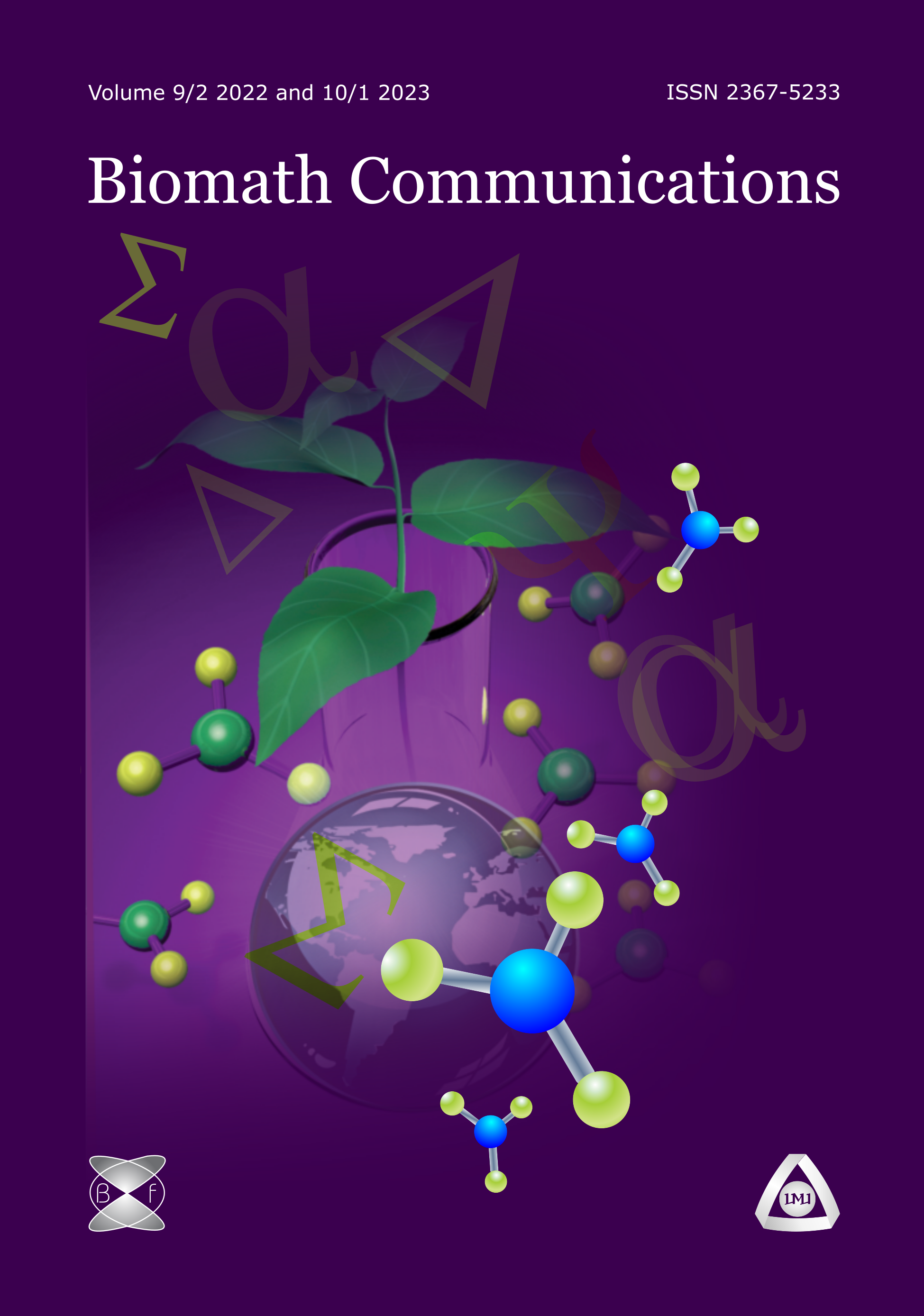Comparative Processing of Enzyme Kinetic Data by Henri and Michaelis-Menten Equations
DOI:
https://doi.org/10.11145/cb.v3i1.692Abstract
The deduction of Michaelis-Menten equation is based on the preposition of quasi-steady state, i.e. the concentration of the activated complexes is kept constant in time. In the general case it is not true, particularly at low enzyme concentrations compared to the substrate one.In the present study own experimental data on the nitrate reduction by crude enzyme extract stimulated by constant electric field are handled by both kinetic models. It was demonstrated that the more general model (i.e. the one of Henri) leads to more consistent results and reasonable values of the estimated kinetic constants than the Michaelis-Menten ones in the considered case.
Downloads
Published
Issue
Section
License
The journal Biomath Communications is an open access journal. All published articles are immeditely available online and the respective DOI link activated. All articles can be access for free and no reader registration of any sort is required. No fees are charged to authors for article submission or processing. Online publications are funded through volunteer work, donations and grants.
Authors who publish with this journal agree to the following terms:
- Authors retain copyright and grant the journal right of first publication with the work simultaneously licensed under a Creative Commons Attribution License 4.0 that allows others to share the work with an acknowledgement of the work's authorship and initial publication in this journal.
- Authors are able to enter into separate, additional contractual arrangements for the non-exclusive distribution of the journal's published version of the work (e.g., post it to an institutional repository or publish it in a book), with an acknowledgement of its initial publication in this journal.
- Authors are permitted and encouraged to post their work online (e.g., in institutional repositories or on their website) prior to and during the submission process, as it can lead to productive exchanges, as well as earlier and greater citation of published work (See The Effect of Open Access).

